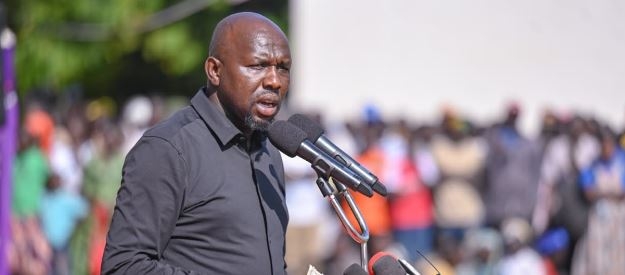A lot has happened since the Kenya Kwanza government took the trappings of power. Undoubtedly, the question of the high cost of living continues to unsettle all Kenyans.
To a government that rode on the mantra of lowering the high cost of living, this must be the biggest headache that should be addressed.
The question is how? Bishops last year came out guns blazing asking the government to review the tax regime that appears to be more oppressive than before. The position taken by the religious leaders should be praised as part of the much-needed alternative voice from Kenyans.
You no longer need to be a tax expert or economist to tell that the nation is on a downward trend in terms of rebooting the economy even if the government records speak otherwise.
What should have been the government’s strategy in its efforts to revive the ailing economy? Kenya is soaked in huge public debt occasioned by a high level of appetite for debts bu the Uhuru Kenyatta-led Jubilee regime.
What the new government could have done was to halt any new projects and concentrate on completing ongoing ones. The savings made from halting new projects would then be channelled into debt repayment until the economy showed promising signs of stability.
While doing this, the government would review some of the oppressive tax regimes to attract international and local investors as opposed to introducing new tax regimes that have not only scared some international investors and strategic partners but also led to behaviour change among a majority of Kenyans.
A tax regime that does not mirror possible behaviour change among the taxed can easily lead to lower tax collection as observed from the taxman's missed targets.
Should government ignore calls by ordinary Kenyans and members of the political class within the government and the opposition to lower the cost of living?
In a state where the country is grappling with finding her rightful footing, it is proper to pause and listen to the alternative voice. It is a well-considered view for the government policy drivers to pause and listen to every constructive voice, including the dissenting voices.
There is an urgent need for the Kenya Kwanza government to review some of its policies that might jeopardise Kenya’s current and future development.
Focusing on raising taxes as the primary avenue of raising national revenue without considering the dwindling fortunes of Kenyans can be detrimental to the overall performance. This endless trend of raining taxes at the slightest opportunity will make Kenya unattractive as an investment hub of yesteryear.
It is time the President and his team reviewed the overall strategies intended to reboot the economy. It should go on record that for the longest time, Kenya has been a regional economic powerhouse but this is likely to change soon should we ignore the red flags.
Tanzania appears to be the immediate beneficiary of Kenya’s real and perceived missteps, with neighbouring countries like Uganda in the recent past opting out of historical trade ties with Kenya in the purchase of fuel. This is a tell-tale sign that some of our public policies are unattractive to some of our strategic partners and investors.
Having said that, Ruto has time to steady the country in this financial year to fuel hope among Kenyans who look up to the government for an improved business environment as well as guaranteed security for their lives and property.
Lawyer and public policy consultant. [email protected]

















